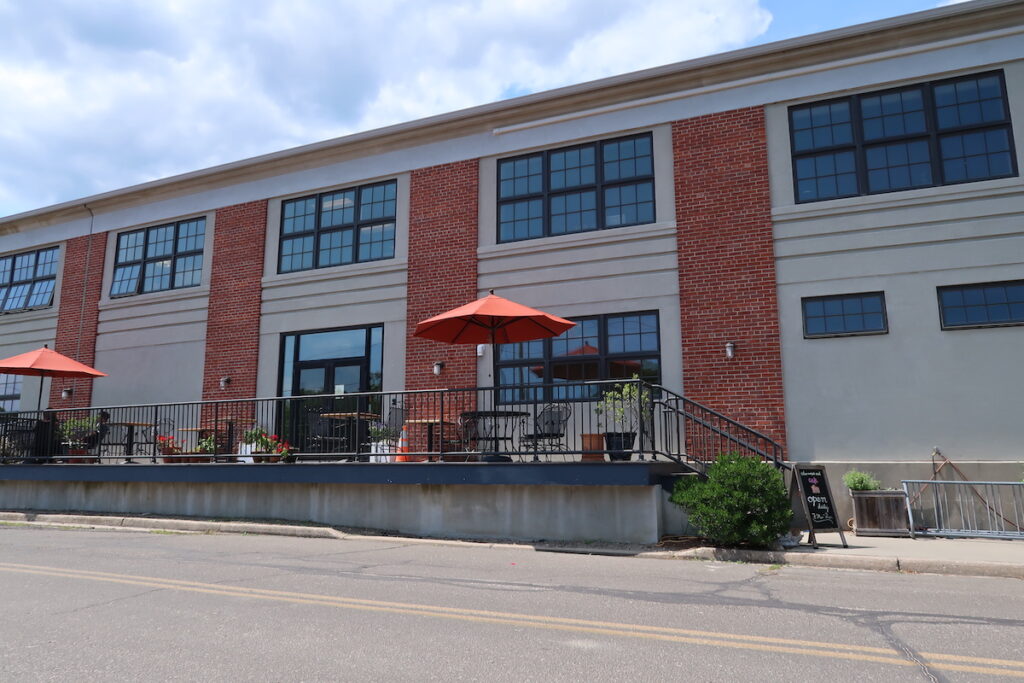Southold Town Board passes ‘fish farming’ regulations

The Town Board passed rules Tuesday night that limit aquaculture — the growing of ocean life such as kelp, crustaceans or fish for sale — to particular zoning districts in Southold, defining exactly what the practice is and exactly where it’s allowed.
Although town officials have said that aquaculture is protected under state agricultural law, it has remained controversial for some residents during months of discussion prior to the law’s adoption.
At a previous public hearing on the measure, they expressed concern that aquaculture uses in their neighborhoods would affect their quality of life and took issue with allowing the practice at all in zoning districts that also allow homes.
“Some people have expressed some reservations,” said Southold Town Supervisor Scott Russell at Tuesday’s meeting. “We’ve included those reservations and accommodations in the code.”
The new guidelines, which were passed unanimously by the Town Board, focus on “land-based” aquaculture, meaning water-based operations like oyster farming in local waterways wouldn’t be subject to the same restrictions. Those operations in bays and creeks are regulated by the state Department of Environmental Conservation.
Town leaders have said the local regulations are needed; since aquaculture is protected under the state’s agriculture and markets law, the town is required to allow it within its borders. If the town doesn’t have clear regulations or is prejudicial against the industry, prospective business owners could sue and force their way onto properties.
“What we have is a situation where Southold’s agricultural industry is evolving,” Mr. Russell said at Tuesday’s meeting. “This is completely consistent with that.”
According to the resolution passed Tuesday, aquaculture is now allowed in agricultural districts so long as the parcel is at least seven acres.
Aquaculture in those districts — which also permit housing — must also be set back at least 100 feet from the road and 200 feet from adjacent properties. The use must also be contained in some kind of structure, without open air operations, according to the code.
Town officials said these limitations are a response to neighbors who were worried that aquaculture regulations would lead to smelly “fish farms” near their properties and water quality problems.
No residents spoke at Tuesday’s meeting, where Mr. Russell said the regulations took into account the concerns that had been expressed previously. He said the zoning code changes ensure that aquaculture uses will have “no impact on residential communities.”
Mr. Russell added that uses like aquaculture should be embraced, since they contribute to the local economy.
“People need to start asking, ‘If we support local business, where do we think local business is going to come from, if not local agriculture?’ ” he said. “Where do we think the jobs are going to come from if we don’t support small businesses?”
In addition to the agricultural districts, aquaculture is now permitted in light industrial zones. Those zones do not have the same setback requirements, but do require aquaculture operations to be enclosed, according to the Town Board’s resolution.
Under the rules, all land-based aquaculture operations are allowed to designate up to 10 percent of their floor space for retail sales. They must also receive site plan approval from the town planning department before opening.
Karen Rivara, the owner of Aeros Cultured Oyster Company in Southold, said the regulations were a good start.
“At least it’s something, which is better than nothing,” she said.
Ms. Rivara, who is also president of the Long Island Farm Bureau’s board of directors, said opposition from neighbors came from a “vocal minority” who were afraid of the unknown.
“This was a pretty heavy-duty NIMBY case,” she said. “When the Town Board is pushed like that they’re not in the position to craft the very best code.”
She added that Southold Town needs to “find a place” for innovative new forms of agriculture, including aquaculture.
“We’re farming in suburbia and its very, very difficult,” she said. “But I think it’s essential that we maintain a viable food-shed out here.”
The law is expected to take effect later this fall after it is filed with the New York Secretary of State.
Photo Caption: In this photo from November, Tess Gordon of Celestial Shrimp shows Town Board members one of their shrimps. Aquaculture uses like the Gordons’ shrimp farm would be covered under the new regulations. (Credit: Cyndi Murray photo, file)








